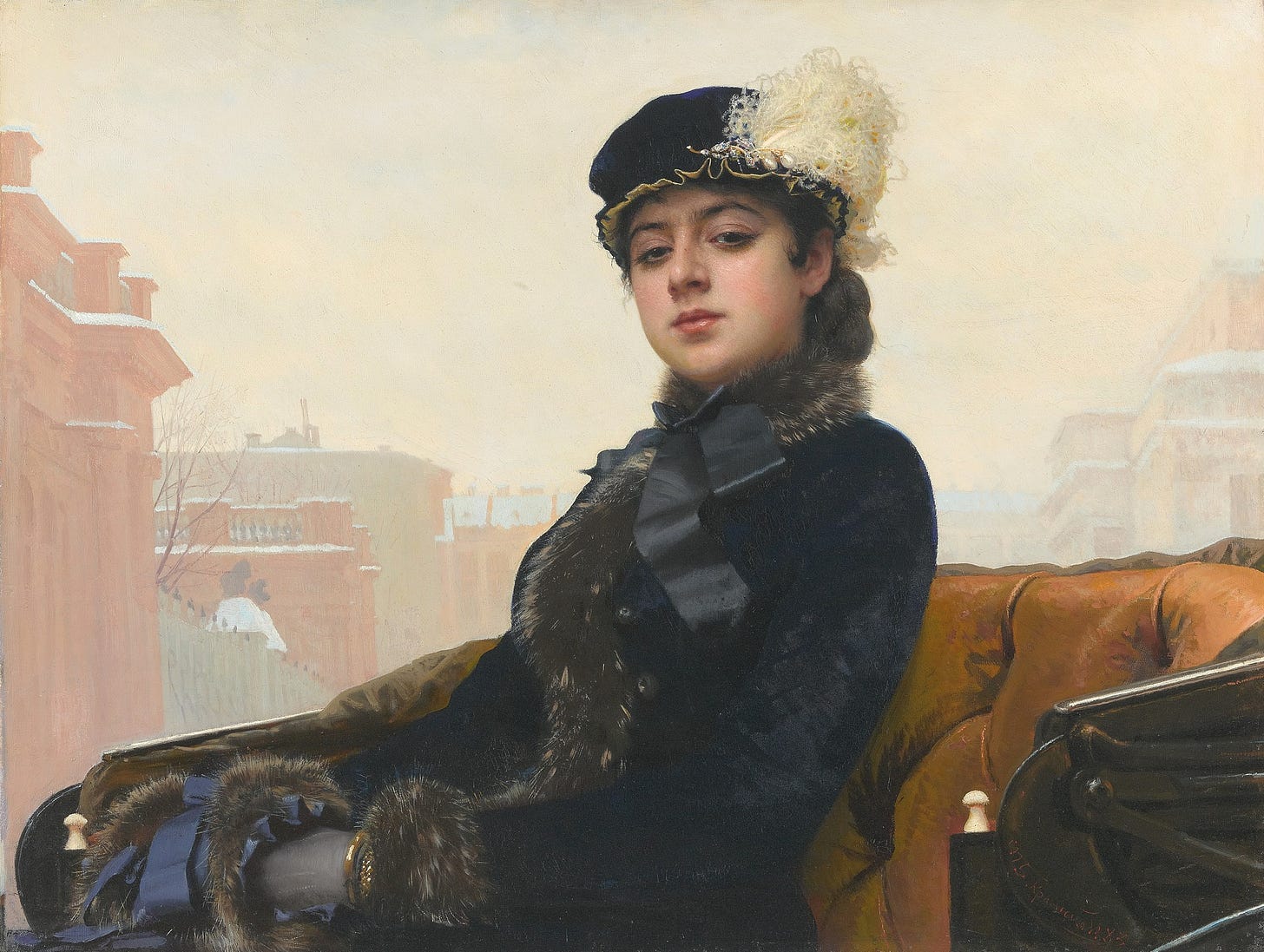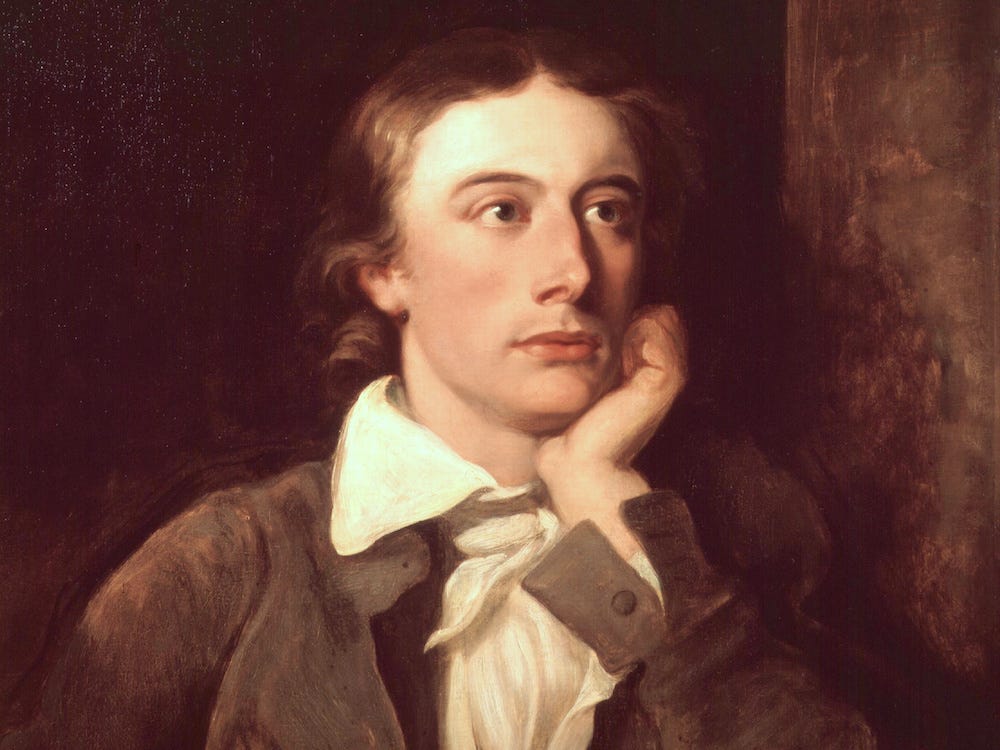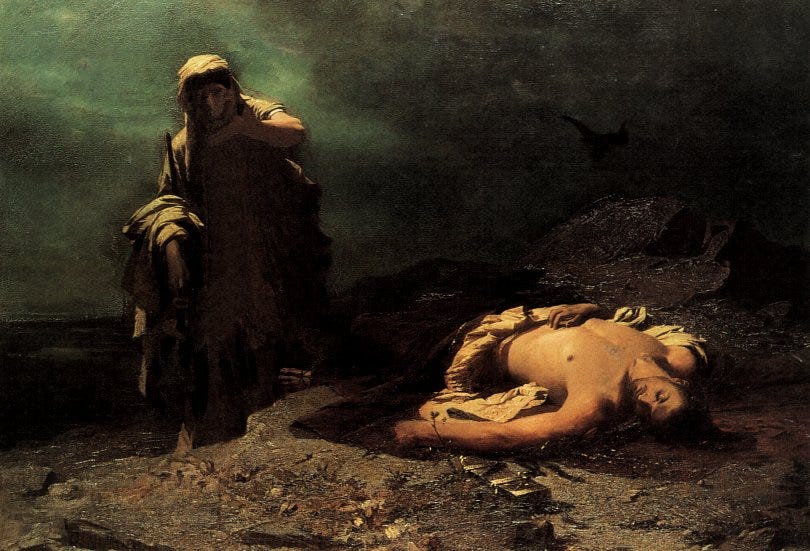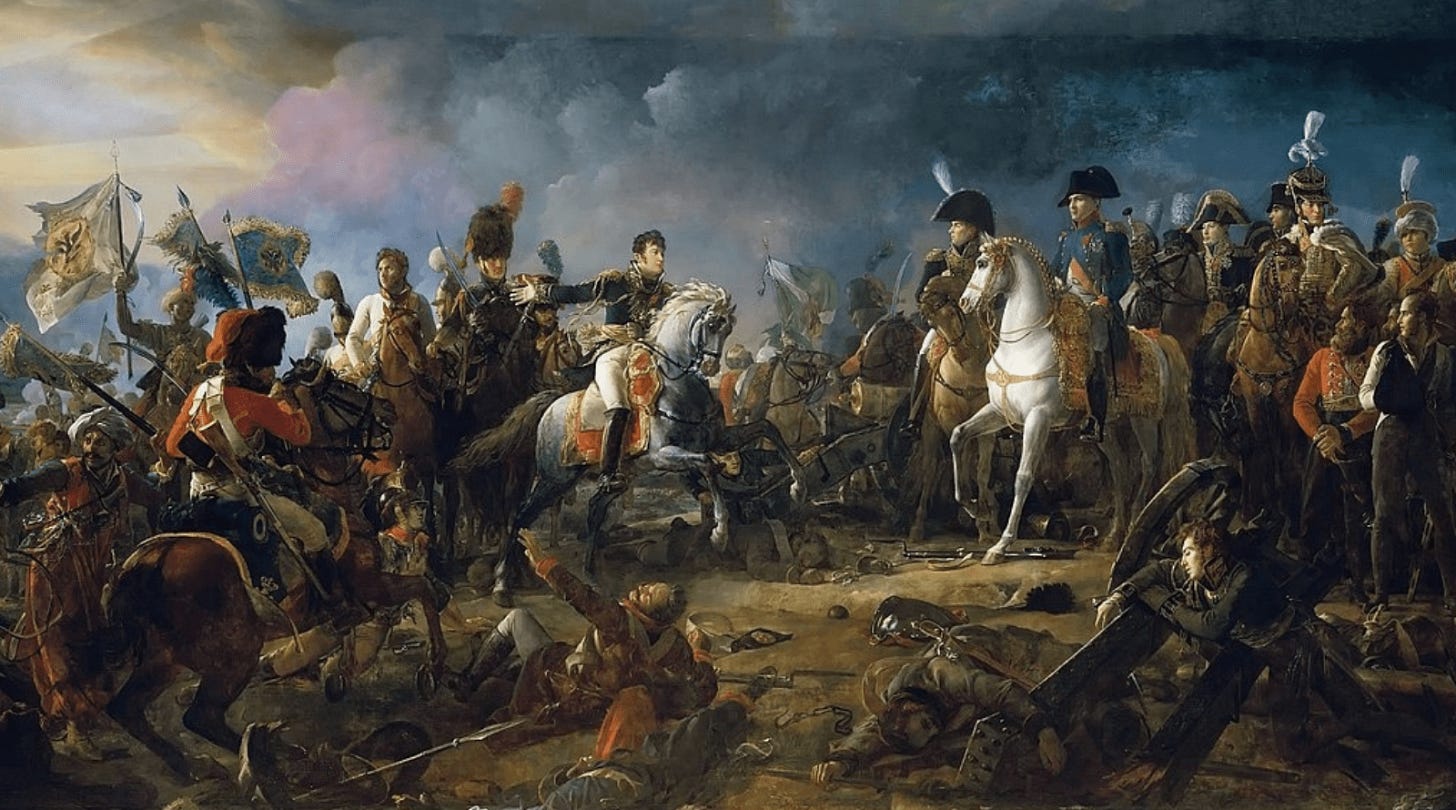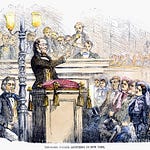Nathan Nielson: Welcome to The Eclective, a new publication and podcast of Books and Bridges, where we explore the meanings of the world and apply them to modern life. My name is Nathan Nielson and our guest again is Gary Saul Morson, professor of arts, humanities, Slavic languages and literatures at Northwestern University. He is a scholar of steady, reasoned judgment, trained in both literary and philosophical disciplines. Today we continue our probe of the book Minds Wide Shut: How the New Fundamentalisms Divide Us, published by Princeton University Press, co-authored by Dr. Morson and economist Morton Schapiro. We’ll examine how great literature elevates public discourse and fosters the kind of mirroring that allows people of different backgrounds to see into each other. The empathy of here and now requires the perspective of beyond and before. Working against trends that simplify and dismiss the great body of human wisdom, this book embraces the wonder and mystery of life in all its complexity. And it is our job to put it into dialogue. Dr. Morson, so nice to have you back.
Gary Saul Morson: It's good to be back again. Thanks for having me.
Nathan Nielson: So last time we discussed the first part of your book, which was mostly about studying the mindset of fundamentalism and how we can combat that mindset. Today, we'll talk about the literary side of that conversation and how literature can offer a kind of antidote to simplistic, fundamentalist, rigid ways of thinking. So let me just start by asking you, what does literature have to do with the discourse and health of a society?
Gary Saul Morson: Well, that's a good question. There's never been a society without some form of art. And it's in art that society really, particularly literature, can hold a mirror up to itself and examine what they usually take for granted. So you can see yourself better. You read a novel, you identify with a character unlike yourself, and see how that character would look at you the way you look at her, and then you have a better sense of who you are, what your values are, what your culture's values are. That's one of the main functions of literature that without it a society becomes blind. It loses its perspective on itself.
Nathan Nielson: And you've made a career out of it, a very successful career.
Gary Saul Morson: Well, you know, I've tried to convey to my students what literature has to offer. Because the way it's usually taught in high schools and indeed in colleges, it doesn't seem to have very much to offer. We know it's something they have to do or they're not going to be educated, but they don't see any point to it. And my job is to get them to see why literature is worth their time. Because it takes time to read it, right? I teach Russian novels after all, which are famously long. And why is it worth spending all that time? What is it you can get from literature that you can't get, or get as well, anywhere else? And if I'm successful, the students will realize that. And I know that because they'll ask me, what shall I read next?
Nathan Nielson: In the book you write, and this quote really stuck out at me, you say: “We live on a little island of space and time, and literature is, perhaps, the best way to see beyond it.” What perspective do the great books offer us?
Gary Saul Morson: We have a natural tendency to imagine that we are the smartest, wisest people who ever lived. And it's easy to prove that to yourself. You just look at somebody else, and they don't agree with you. They have wrong ideas from your perspective, and therefore you're wiser. You can verify that all the time. And a great deal of the way literature is taught presumes that. You go back to Shakespeare or Dante or Dostoevsky and judge them according to the values of today. And insofar as they share them, you pat them on the head and say, nice, nice boy, nice Shakespeare. And as far they don't, you shake your fingers at them and say, how could you not have heard of recycling or something like this? But if you do it that way, you miss the whole point of literature because if you presume that your values are necessarily the only possible ones for a wise and decent person to have, you prevent yourself from learning anything else from any other culture. Think how odd it is. You presume that, here we are, let's say my students who are upper middle-class Americans living in the year we're living in, a small part of history, a small part of the world, different from other parts of the world, but we know that we are right about everything. Think how absurd that is when you actually say it. But you don't say it, you just assume it. But when you start seeing how brilliant people, who understood things about life you never dreamed of, see the world differently, then you start asking, well, maybe I should ask how they would look at me, not just how I look at them. And just as they are always showing the narrow-mindedness of people who think they're the wisest people in the world, we laugh at those Victorian Englishmen who thought they were so smart. Then you start asking, aren't we doing the same thing? They thought their moment in English history was the height of civilization. We think our moment in American civilization is the height of civilization. Are we any less narrow-minded than the people we laugh at? That's what great literature will immediately get you to do as a starting point. And then you can proceed to actually get the wisdom from other points of view.
Nathan Nielson: Yes, along those lines you write: “Great literature is capable of offering wisdom only if it can say things we do not already know and believe. The classics offer insights that, on the one hand, can participate in contemporary dialogues and, on the other, reflect a perspective not already present among our contemporaries.” So that just kind of sums up what you just talked about. How do we find timeless wisdom in literature without staying stuck in our blinders in the present, or, which is another problem, without idealizing the past?
Gary Saul Morson: Well, here's what you do. Novels are particularly good for doing this. You identify with a person unlike yourself. That's very hard to do in life. You can try, and we should, to imagine when we're arguing with somebody or disagreeing – but how do they see me? It takes some effort to pursue that. You can do that, and you should. But literature has devised, particularly novels, ways in which you can get inside the head of someone like yourself. Great novels trace the sequence of thoughts that go on in, let's say, Anna Karenina's head, and show you why thoughts unlike your own or feelings unlike your own seem natural to her or to people of her social class. And why different people, at the same time, think differently just the way different people do now. But you don't just know that as an abstract fact. It takes hundreds of pages, a novel is hundreds of pages long, it takes a long time to read it. And in it you're identifying for hours and hours and hours with another consciousness. When the heroine does something you know will hurt her, you wince – no, don't do that, Anna. You wince, you want to turn your head away from the page and you come back. And the page says the same thing. And you are living in that character's consciousness. And then by doing it long enough, you realize what it is to experience the world differently, what it actually feels like. You're not just told you should empathize with somebody unlike yourself. You're doing it for hundreds of pages and many hours. And not just with one character, let's say not just with Anna Karenina, there are several characters in that book you identify with. In fact, I sometimes like to think that the difference between a major and a minor character in a novel is not how much space they occupy, but whether you're asked to experience their thought from within, which you can do in a short space or a character period in a long space without doing that. In satire there's a lot of characters you don't identify from within. Then you develop that habit of identifying with someone, of seeing the world differently. And maybe, just maybe, you can bring that habit to the real world. Try to do it with real people. Or at least realize that if you can't, you are really missing something important. That people who don't think like you are not necessarily foolish or stupid or venal. They have experiences different from yours, which naturally allows us to see the world differently. Everybody's view of the world is partial in both senses of the word. It's biased in some sense, but because it's only of a part, and somebody else is a different part of the world, which leads them to different ways of thinking. And once you've seen that, say in a novel, even if you can't figure out why another person thinks the way they do, you realize that there is a reason and it's worth the effort to try to learn.
Nathan Nielson: Yeah, that's a great summation. One of the understated purposes of your book is to create an environment in which a democratic culture can set in place, where a democracy can thrive and flourish. And it's that idea of individuals getting outside of themselves, getting outside of their immediate environments, and interacting and dialoguing with ideas, habits, people, of a variety of shades. It's that that makes democracy possible. And I think that's where literature actually comes into that equation of not only enlightening a society, but actually promoting a democratic infrastructure, mindset.
Gary Saul Morson: Yes, I think it does. I mean, if you don't have the view that another point of view may have something to teach you, that you are not necessarily absolutely right, well, if you think you're absolutely right, then anyone who disagrees with you is either stupid or evil. And so, your party will view the other party as necessarily evil. But democracy depends on the notion that there are legitimate different points of view. That's why we have free speech. That's why we don't have a one-party state. We pattern to people – well, yes, you know, I think this is right, but, you know, we tried this and it didn't work. I guess I have something to learn here. Maybe you were right about that. That's why people change their mind. They know that they do not have the absolute truth. They know that the best-intentioned reforms sometimes not only fail but are counterproductive. That with good intentions, you come up with bad solutions. That you've missed something really important. And that, therefore, you want other points of view that may have seen something you don't. And in that case, negotiating with people unlike yourself to find some sort of common ground you can both support becomes a useful exercise, not just an immoral one, while I’m compromising with evil. And democracy depends on not just shutting down or even shooting your opponents, that's what one-party states do, but actually dealing with them. If you don't believe you should deal with them, then you don't believe in democracy. And understanding that other points of view may have something to them, that what shaped you is not the only thing, it's not guaranteed to be right all the time. That's what gives you the sense of listening and compromise and exchange and negotiation that democracy depends on. President Lyndon Johnson used to say – before he was President he was Senate Majority Leader and he crafted a lot of legislation by dealing with parties that had many different factions; they weren't unified points of view; so dealing with other members of his own party, or the other party, to craft legislation, that was what his job was. And he said that his favorite line from the Bible was, “Come, let us reason together.” Well, reasoning together can only be done if you're willing to listen. We often speak of the importance of free speech, and it is extremely important, but it doesn't work unless you also listen.
Nathan Nielson: Yes, that's a very good point. You go to great lengths in the book to categorize the world according to its different spheres, to let certain realms of life be separate and distinct. For example, to let science and morality play their different roles without trying to force them together in all cases. And to that end you quoted Wittgenstein in the book: “We feel that when all possible scientific questions have been answered, the problems of life remain completely untouched.” How can literature and possibly even sacred texts illuminate this fluid and indeterminate nature of life?
Gary Saul Morson: Yes, well look, people keep thinking that we can really solve all the problems of the world just by looking at it scientifically. Just as Newton formulated the laws of planets, we can arrive at the laws of society and our social recommendation will therefore be correct scientifically. Not only Marxists thought this, Utilitarians, lots of people, Behaviorists, lots of people have thought this. But Wittgenstein's point is that when you really come right down to it, science deals with questions of causality. Why did this happen? What are the rules, the laws that made this happen? What are the principles that made it happen? It doesn't tell you what should happen. I mean, if I drop a pen, it will fall at 9.8 meters per second squared, as we learn in first year physics. Is that moral or immoral? Well, the question makes no sense. Does it show meaning? Is it meaningful or not? The question makes no sense. It simply is. And so, by that, Wittgenstein's point, I think, is correct – is that you can never derive morality or meaning from simply looking at laws of physics and nature. Those things have to come from somewhere else. And the purpose of, I think, the best purpose of the humanities in general, and literature in particular, is to explore the best wisdom that humanity has produced in its many different cultures from all over the world in a few thousand years and that we can learn from. We have very little to learn from Aristotle's physics, or the science of the 17th century, but that's because we can mark genuine progress in physics. But that isn't true of morality and the idea of meaning. There's no clear line of progress. Unless you think you're the smartest people in the world and everything leads to you, which you realize pretty soon is a naive view. And so, although you don't have much to learn from Aristotle's physics, you have a lot to learn from, let's say, his views about what friendship is. Those are quite profound. And from The Iliad, what courage is. From the Chinese Tao Te Ching, about how you accommodate yourself to the universe which seems not to be built for you. All these things which are always present in the human condition, they've been addressed somewhere by some wise group or person. And you're not going to get that in chemistry or physics. You need to get that from religion, literature, philosophy.
Nathan Nielson: One of the reasons why I love your book is that you cite so many great authors and great thinkers of the past and you include their quotes within your book. And one that I really like among the others is one from John Keats. It's a passage from a letter that he wrote and it seems to echo your entire working thesis. “It struck me what quality went to form a Man of Achievement, especially in Literature, and which Shakespeare possessed so enormously - I mean Negative Capability, that is, when a man is capable of being in uncertainties, mysteries, doubts, without any irritable reaching after fact and reason.” Can you explain how this double vision can help some of our societal quarrels today?
Gary Saul Morson: Yes, well, if you realize that you are so sure of your, let's say, belief in some social program, only because you have ruled out counter evidence – your newspaper doesn't say it, and if the other newspaper says it, well, that's their bias, unlike us, so you can never learn anything that isn't true. Well, if you really care about the truth and helping people with your social reform, you don't want to rule out counter evidence. You invite it because then you can modify your proposal. If you don't, it's because you're interested in winning, not in helping. If you think of what Keats said about the idea of being willing to live with less than certainty, that your beliefs need to be subject to doubt and examination from other points of view, then you can live in a world where people can differ and amiably get along and learn from each other. And that's the vision that animates democracy. It's precisely the opposite, for example, of the vision that animated the Soviet Union, which was based on the notion that they had the absolute and final truth about all moral and social questions. And therefore, you don't let other people say wrong things. I remember, in my first trip to the Soviet Union, talking to this school teacher I met. And I said, “wouldn't you like to be in a society that had free speech?” And she replied, “what are you talking about? We have perfect free speech. We just don't allow anyone to lie.” Well, I used to get my students to laugh at that. They don't laugh so much anymore because that's what they're told all the time. You don't agree, it's because of misinformation, lying, right? The idea that with the best will in the world, you just might be wrong. That is what it takes to adapt to changing circumstances, to live with and learn from other people. And that's, I think, more than ever what we need right now.
Nathan Nielson: Chapter five is in many ways, I think, the centerpiece of your book. It maintains that we should hold sacred texts and great literature as standards of accumulated moral and practical wisdom. But that we should at the same time allow them to be flexible enough that they can speak to us in ways we can understand and in ways that allow us to correct our own biases and flawed lenses. You introduce a parable that I think your colleague Morton Shapiro shared with you – the Rabbi's parable. I'll let you tell it, but how does that Rabbi's parable of the town clock help us relate to sacred texts? Because that's a big part of the question of fundamentalism.
Gary Saul Morson: Well, why don't you paraphrase it since I feel awkward paraphrasing my co-author without his being here.
Nathan Nielson: Well, let me attempt that. Let's imagine a medieval town or something like that in which there's a clock that is situated and kind of pinned up to the wall low enough so that everyone walking by can change the clock, can change the hands of the clock. And eventually, the citizens are comparing, they're basing their sense of what time it is on their own watches. And so based on that, they're changing the time for the entire town on this clock. So eventually what happens is that this town clock, which is supposed to be the standard by which people can set their watches, becomes the opposite. It becomes so unreliable, no one can rely on and know what actual time it is. And so to remedy that matter, the town council got together and they decided to take the clock, raise its level several feet above anyone's reach so no one in the town can reach it. No one can meddle with the hands of the clock. And so that creates a situation in which the entire collective of the town is looking at one standard of time and based on that they draw their sense of what time it is. And that's a parable of how we should be very careful about allowing what we deem to be a standard to be subject to just change by whim, on demand, so to speak.
Gary Saul Morson: And at the same time, though, sometimes that clock turns out, actually, the standard, to be wrong. So it does occasionally have to be changed. But it's hard. Well, think about that with the Constitution. If the meaning of the First Amendment is whatever my party wants it to be now, there won't be any free speech for the people. I always want it to mean – yes, to tell the truth, my truth, not yours. It has to be something that is not impartial and not changeable easily enough. And yet, provisions in the Constitution after several hundred years do have to be adapted, keeping the same spirit, but to different circumstances. And that's like the clock. It can be changed. It's just not easy. And that's why our founding fathers even put it – okay, it's hard to pass a law because you need the President, the Senate, and the House, which are all elected on different cycles, to agree. But you can do it. It's still harder, though. The laws have to conform to the Constitution, which they can't change. It's changeable, but only by a very cumbersome process. It's only been used very occasionally. So, you need a standard so that it's not at people's whim, not whatever you want it to be at this moment, but it's not so rigid that it can never be changed at all. That parable that my co-author used, he quoted it as rabbi because he cares very much about his religious beliefs. And that's how he looks at traditional moral precepts. They go back to antiquity. But occasionally, there's some that have to be adjusted after a few thousand years. And the book gives several examples of those. But you don't just do it lightly. Sometimes you do it, but you don't do it lightly.
Nathan Nielson: And that seems to be one of the core principles of your book, which is balance, measure, when it comes to developing these standards of literature, standards of sacred texts, standards of societal norms and behavior. So yeah, I really thought that was an illuminating parable. Sacred texts, they're very difficult to read, they're very difficult to understand, and sometimes they're very difficult to apply to your modern life, to your modern society. And so you have to treat disturbing moments in literature very, very carefully. And there are two examples that you, among others, talked about in the book, two stories that present very difficult moral dilemmas that are not easily resolved that represent a clash of values, core values clashing together. And that's the story of Abraham, the patriarch, and Antigone, the play by Sophocles. I thought those are two pretty good paradigmatic examples of how inevitably we see in society the clashing of core values and there are literary examples in the past that guide us through these. Can you say more about those two stories, or even one or the other?
Gary Saul Morson: Well, let me talk about Antigone for a moment. You know, the Greek tragedy in general is based on an idea that is foreign to many people now. We naturally assume, well, look at the success of science. The universe was made so that the human mind could understand it. But that may not be true. Even if you think from a Darwinian perspective, our mind evolved so we could survive in this particular planet, in this particular way of living. Why should it necessarily be adaptable to a world that may be a trillion light years away with very different circumstances? The world may be beyond our ken, and we just don't see the things that are beyond our ken because they're beyond our ken. We just can't see them, right? The Greeks and Greek tragedy assume that the world is too mysterious for the human mind. It's guided in large part by principles that we don't comprehend. They attributed these to the gods. And the Antigone is a good example of a play based on an idea that's essential to tragedy, which is that sometimes core moral principles that you must both obey conflict. And there is no single formula for resolving them. I recently saw a performance of the Antigone at the University of Chicago Theater, which usually does very good plays. But this one is one of the worst I have ever seen. Because it was staged with one side being absolutely right and the other side being absolutely wrong. And to make it worse, it had the good people all be played by non-white actors, and the bad person was always white. It missed the point of Greek tragedy, which is – we don't know for sure what is right and wrong or who is right and wrong. There is no formula for doing it. I mean, they could have done that with some other work I suppose, something less profound than the Antigone, but they missed the entire point of it. That's the sort of wisdom you do get from Greek tragedy. You just don't know. There are five plays of Euripides that end with, as closely as I can remember them, the following lines or close variants on them – “The shapes of divinity are many, and the gods devise many things that the human mind could not expect. What was expected did not happen. And what happened nobody anticipated. That is how these events turned out.” So that's how five plays end. That's a core bit of wisdom that we could use right now. I mean, could you imagine an editorial in the New York Times ending with – well, you know, the world is too complex, we just got it wrong. I can't imagine such a thing. But we should imagine such things of those who claim to instruct us.
Nathan Nielson: Yeah, I think the core clash in Antigone is between the prerogatives and demands of the civil government versus the mandates of eternal law.
Gary Saul Morson: Yeah, what we're commanded to do as individuals and what we are commanded to do as members of society. They may not align, in this play they don't.
Nathan Nielson: Yeah, and if we read that play with the idea of, well, our job now is to somehow resolve that clash. I think that's missing the point. I think the point is to show how the experience of being a human being will involve such core clashes that we may not resolve, but we still have ways of working through them and enduring them. In Antigone's case, she ends in tragic manner, but the Greek tragedies show us ways to at least view the problem and somehow deal with it, endure it. And then of course Abraham is an example of a clash between divine command and the love of your own son.
Gary Saul Morson: Yes, I think it's another such clash. The story is told in very few words, it’s incredibly economical. But at least as several people have read it, it is about the depth in a person and what Abraham must be thinking on those three days when he's lost journeying to where he must sacrifice his son, knowing, on the one hand, that he will sacrifice his son, and, on the other, that he can't sacrifice his son. Knowing that God is just, and yet also knowing that God gave him a solemn promise that he would have descendants through the son he’s now supposed to sacrifice at a young age. Somehow, he must hold all this in his mind together. And his faith and his doubt are not two different things but are the same thing. That's how Kierkegaard, for example, read this story. It's more or less how it gets interpreted in the book some people think is the first truly great book about comparative literature – Mimesis by Erich Auerbach starts with a discussion of the story along similar lines. And in both cases you have a sense of what it is to live with negative capability -- you should know, you want to know, you can't know.
Nathan Nielson: That's beautiful. This conversation would not be complete if we did not talk about something relating to Russian literature. So let's talk about War and Peace for a second. You talk about War and Peace and Anna Karenina quite a bit in the book. There was one passage that stood out for me when you addressed Prince Andrei and Pierre and how those two characters are close friends in the book. They live very different lives, but in some ways parallel inner struggles. And you write how Pierre and Andrei “oscillate between these two extreme perspectives of heroism and negation until they learn to seek wisdom neither in certainty nor in denial, but in the prosaic of lights and shadows.” What can you say briefly about the arc of their inner lives that teach us about how gaining balance and maturity and judgment is the right goal to look for.
Gary Saul Morson: Yes, they both oscillate between thinking they know what life is all about and thinking that it's not about anything, that it has no meaning at all. They experience each of these states differently, psychologically they’re different people. But the way Tolstoy structures it, whenever one is in one state, the other is in the other. But they alternate. And they meet for conversations. And those are conversations about the ultimate questions of life. One of my favorites is in the first half of the book, maybe a third of the way through. They meet on Prince Andrei’s estate. And they're walking across it and they're at a ferry crossing and they're going to cross, right, and they hear the water sort of lapping and they're holding these philosophical conversations. Meanwhile, the peasants are looking at them like – why don't these guys get on with it? They don't understand what's going on. And each one of them – Andrei and Pierre – is saying why they believe or don't believe. This is one of the times when it's Pierre who has faith, that thinks he knows. And he utters some of the most wonderful lines in the book, which goes something like this – “We must live, we must love, and we must believe that we exist not only on this scrap of earth, but in the universe, in the whole.” And all feelings of meaning have some of that in it. If all there is – and this you could say is one of the key lessons of all of Russian literature – if you think that all life has to offer is individual pleasure and happiness, you live a very shallow life. So many Americans are taught that, well, life is about individual pleasure, individual happiness. What else could it be about? But if you think that, you will sooner or later have that sense of existential despair that life is meaningless because, in fact, within this life pleasures begin to pall. And this life is going to end anyway. So, there's got to be, if you are to feel meaning, there's got to be something else. And you mentioned sacred texts of religions, but traditionally for Russians the great classics of Russian literature are together a kind of Bible, a sacred text. They look at them for answers to the ultimate questions. Even in the Soviet period when they were officially atheist, they looked at these great works to address those questions. And in fact, Russian literature is amazingly good at this. It does it explicitly. There are great questions in, let's say, Jane Austen, too. But you have to tease them out. They're not voiced explicitly. But in the great Russian novels they are, and you can really grasp what it feels like to think about life with a given philosophy, a given set of feelings, a given point of view on the universe, on the whole.
Nathan Nielson: I love that, thanks. You as a professor have a personal stake in the status of literature in our society and you wrote that love of great literature has become “associated with hopeless traditionalists who regard literary value as an objective reality rather than a play of ever-changing power interests.” What is at stake in society for who wins that argument? Does literature have objective value or is it just a power game of words?
Gary Saul Morson: Yeah, well, I mean, that point of view is that, look, there is no truth, there is no meaning. There's only what one group claims can be true – its meaning for its own selfish interests – and can force others to accept. And that was always true, this theory goes. And therefore, Shakespeare isn't just the way in which the people of those days got there, force others to accept their completely arbitrary values. So there is no point in honoring it. That's become a very common point of view. It became very common in English departments. And then to my amazement, they wondered why nobody is taking English literature anymore. And my answer is, you tell them that it's worthless. Why are you so surprised they believe you? But you don't get that when people teach Russian literature. They really believe that the great books of the world, the great Russian novels, really do have something to tell us of timeless value that people at any time can learn from. And that that is true of the great works of many cultures. We need to honor our sacred texts and understand why they have survived, whether they are from the Greeks or the Hebrews, or if we knew enough, from the Bhagavad Gita or the Tale of Genji or the Tao Te Ching, the great texts, every great civilization has these things. Wisdom, we should learn it all. And that, I think, is what a good part of college education should be about, not that we'll complete it, but we'll give you a taste for it and give you the skills for doing it more. So, when at some point later in your life, some existential question of meaning troubles you, you can turn to these great works and shed some light on them.
Nathan Nielson: On that fine point, Dr. Morson, let's conclude our conversation. It's always a pleasure to have you. Thanks.
Gary Saul Morson: Thank you for having me. You asked wonderful questions. Thank you.
Nathan Nielson: I appreciate that, it's a dual effort.
Gary Saul Morson: Yes, it is really.
Nathan Nielson: We'll conclude there, thank you very much and see you next time. Bye.







